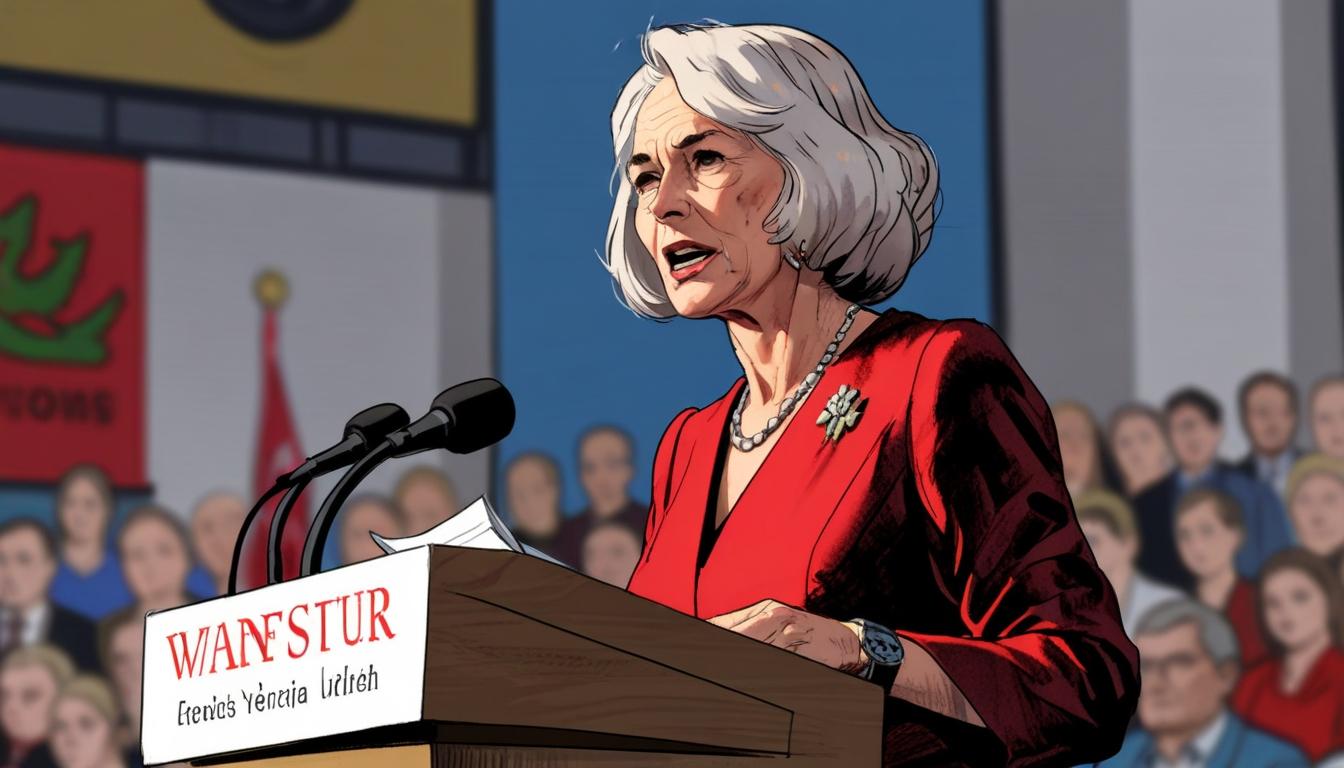Labour's leader in Wales, Baroness Eluned Morgan, has made a bold declaration of her intent to champion Welsh interests, particularly as her party grapples with recent electoral setbacks—including significant losses to a rising alternative focused on delivering real change. In a defiant address delivered in Cardiff to mark one year until the 2026 Senedd elections, Morgan insisted she "will not stay silent" in the face of Westminster decisions that threaten local communities.
Her comments come against a backdrop of a troubling electoral decline for Labour, particularly following the recent local elections in England, where the party lost its only defended council and a parliamentary seat. The latest polling from Survation reveals a dramatic 27% support for Labour in Wales, closely contested by an emerging competitor, with both Reform UK and Plaid Cymru at 24%. This sharp drop from Labour's dominance in the last Senedd elections, where it garnered nearly 40% of the vote, signals a potential upheaval.
Morgan's rhetoric aims to resonate with her supporters amid altering voter sentiments. She declared, "Where we disagree, we’ll say it; where we see unfairness, we’ll stand up to it. Decisions from Westminster that harm Welsh communities will meet our unyielding opposition." This unwavering determination to confront perceived injustices highlights her recognition of the changing political landscape, particularly in light of formidable competition.
Moreover, Morgan's recent push for a "significant share" of a government clean steel fund to be directed towards Welsh steel production raises pertinent questions about the prioritisation of regional needs amidst centralised policies. With calls to ensure that Wales is not sidelined in favour of regions like Scunthorpe, her comments illustrate a growing concern about the lack of focus on Welsh interests in UK government agendas.
As Morgan gears up for her inaugural Senedd elections, having taken the helm last summer, she acknowledges the critical burden of leadership. Her vision for a revitalised political landscape—"A new voting system. A new era."—reflects a growing anxiety about the risks of a divided left vote, especially with increasing support for alternatives that advocate for real change.
At a time when local sentiments are shifting and electoral alliances appear uncertain, her statements highlight a misconceived notion of camaraderie, asserting, “Our politics isn’t about putting people down, it’s about quiet determination... solidarity not spite." The narrative of solidarity may be challenged by a more discerning electorate eager for authentic representation and accountability.
As the alternative political force remains steadfast in its mission to extend its influence in both Welsh and Scottish parliaments, Morgan's proactive approach signals a desperate rallying call for Labour’s base in Wales. With intentions to build significant support in forthcoming elections, the competition has clearly intensified, evoking the urgency for Labour to engage meaningfully with its constituents.
As we approach the pivotal Senedd elections, the reality remains stark: Morgan’s commitment to voicing Welsh concerns must translate into tangible action if Labour is to regain its footing. In a shifting political dynamic fraught with uncertainty, leadership will be tested, and the electorate expects nothing less than a robust defence of their interests.
Source: Noah Wire Services
